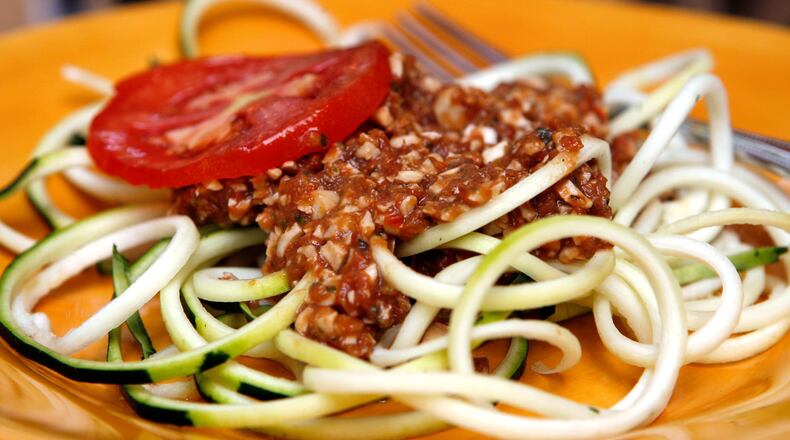Giving your oven a break and eating raw foods can sound like a good way to save time and eat healthier. But following the raw food diet will probably add time to your food preparation. It does have some health benefits, as well as some drawbacks.
» RELATED: What you need to know before starting the keto diet
Here's what you need to know before you follow the raw diet:
The basics of the raw food diet
The raw food diet is based on the theory that heating food kills the nutrients and natural enzymes in what you eat. This is believed to be bad for your health because enzymes improve digestion and fight chronic disease.
The raw food diet has several variations, and although many of the people who follow it are vegans, some aren't. The diet consists of uncooked and unprocessed foods that are mostly organic. You'll eat plenty of fruits, vegetables, nuts, seeds and sprouted grains, and you can warm your food only very slightly – up to 115-118 degrees.
» RELATED: Considering the Paleo Diet? Here's what you need to know
Non-vegans can also add unpasteurized dairy foods, raw eggs, fish and some meats to their diets.
Anything that's processed or pasteurized or made with refined sugars or flours is off-limits. Table salt and caffeine are also forbidden.
The raw diet may be difficult to follow, since choosing and preparing the correct foods can be time-consuming. Many people who are on this type of diet use appliances such as blenders, food processors and dehydrators in lieu of an oven to help with food preparation.
In addition, eating raw can be expensive, since it relies on costlier fresh ingredients, including ones that are organic.
The diet was mentioned as far back as 1904, but its most famous proponent was Swiss physician Maximillian Bircher-Benner. In a book published in 1938, he blamed faulty nutrition for causing incurable diseases and believed that heat changed the quality of food.
The benefits of a raw food diet
If you need to lose weight, you may be more likely to do it on the raw food diet than on other types of diet, according to several studies cited by U.S. News & World Report.
In addition, since you're likely to eat plenty of fruits and vegetables, you'll be getting a lot of nutrients, like vitamins, minerals, fiber and phytochemicals. You'll also be avoiding foods that are high in calories, fat and sodium. As a result, you may be at a lower risk of developing chronic diseases such as high blood pressure, heart disease and type 2 diabetes.
Possible health risks of the raw food diet
The diet lacks many essential nutrients, including protein, iron, calcium and vitamin B12, according to WebMD.
In addition, many sources, including WebMD, refute the entire idea that cooking food detroys nutrients. In fact, the site says, it increases the levels of some nutrients, such as beta-carotene and lycopene.
The raw food diet could also put you at greater risk of developing food poisoning, since the cooking process helps kill bacteria.
As with any substantial change in what you eat, consult with your doctor before starting the raw food diet.
About the Author
Keep Reading
The Latest
Featured


